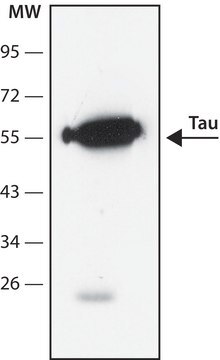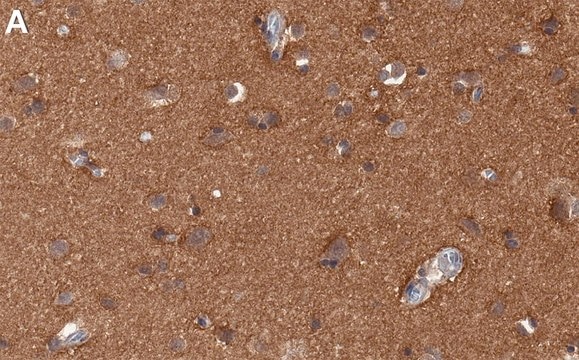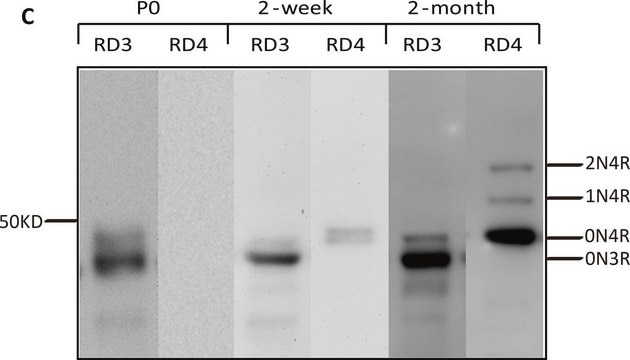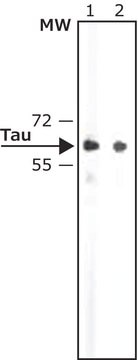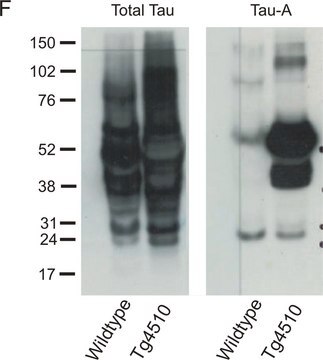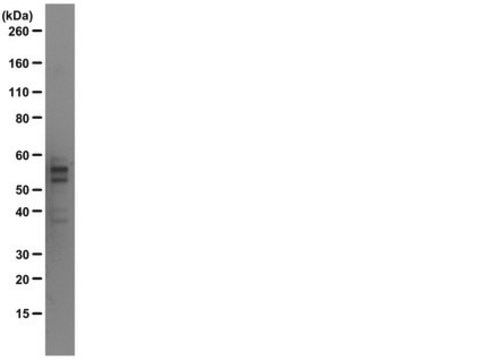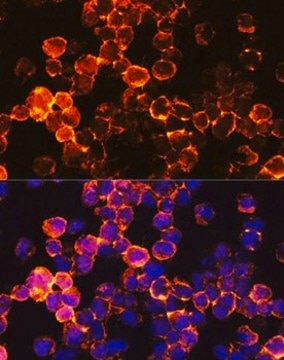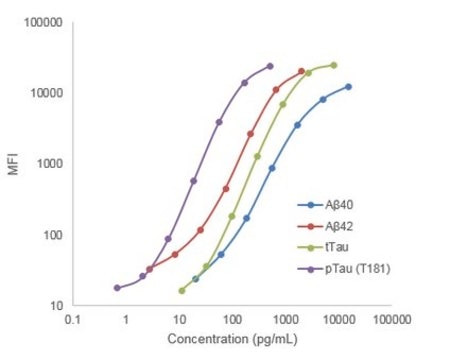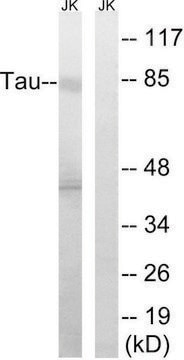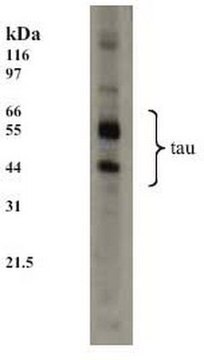MAB2239
Anti-Tau Antibody, clone Tau 7
clone Tau 7, from mouse
Synonym(s):
G protein beta1/gamma2 subunit-interacting factor, Neurofibrillary tangle protein, Paired helical filament-tau, microtubule-associated protein tau, microtubule-associated protein tau, isoform 4
About This Item
Recommended Products
biological source
mouse
Quality Level
antibody form
purified antibody
antibody product type
primary antibodies
clone
Tau 7, monoclonal
species reactivity
human, rat
technique(s)
western blot: suitable
isotype
IgG1κ
NCBI accession no.
UniProt accession no.
shipped in
wet ice
target post-translational modification
unmodified
Gene Information
human ... MAPT(4137)
rat ... Mapt(29477)
General description
Specificity
Application
Quality
Target description
Physical form
Other Notes
Still not finding the right product?
Give our Product Selector Tool a try.
Storage Class
12 - Non Combustible Liquids
wgk_germany
WGK 1
flash_point_f
Not applicable
flash_point_c
Not applicable
Certificates of Analysis (COA)
Search for Certificates of Analysis (COA) by entering the products Lot/Batch Number. Lot and Batch Numbers can be found on a product’s label following the words ‘Lot’ or ‘Batch’.
Already Own This Product?
Find documentation for the products that you have recently purchased in the Document Library.
Our team of scientists has experience in all areas of research including Life Science, Material Science, Chemical Synthesis, Chromatography, Analytical and many others.
Contact Technical Service